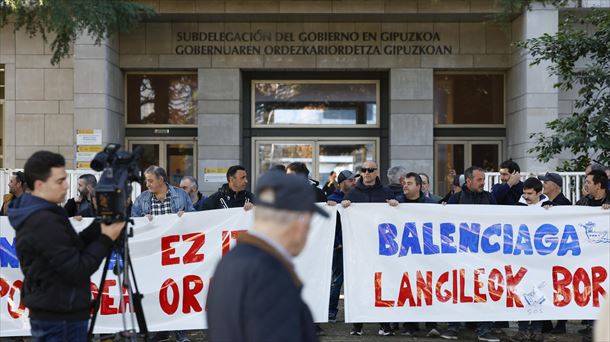A member of the US government assured Reuters that intelligence services believed the symptoms experienced by Russian tycoon Roman Abramovich and Ukrainian negotiators were caused by an “environmental factor” and not by poisoning.
The American newspaper The Wall Street Journal reported that Abramovich and the negotiators showed symptoms of poisoning, such as “redness of the eyes, constant and painful tears, and peeling of the skin of the face and hands.” Abramovich traveled to Lviv earlier this month through mediation between the governments of Russia and Ukraine between Moscow and other capitals. According to the WSJ, he met in Kyiv with Ukrainian negotiators who had the same symptoms.
A group of researchers, Bellingcat, also confirmed the information and explained in a post on Twitter that, in addition to Abramovich, “three members of the delegation who attended the peace talks between Ukraine and Russia on the night of March 3-4, 2022. He suffered symptoms of chemical poisoning. ”
The source quoted by Reuters limited himself to confirming that information processed by the intelligence services indicated that the cause of these symptoms was “ecological” and “not poisonous”. The source spoke to the agency on condition of anonymity and declined to give further details.
As it seemed, in an attempt not to heat up the atmosphere before the new round of talks in Istanbul on Tuesday, at the moment the Russians and Ukrainians are not officially left with either the WSJ news or the aftermath of the services. .
Moscow is silent and the official Russian media does not respond to this information. Mikhail Podolyak, Zelensky’s adviser and one of the main Ukrainian negotiators, was wary of asking the media about this.
“All members of the negotiating team are working normally. “There is a lot of speculation and conspiracy theories in the field of information,” Podoliak was quoted as saying by Ukrinform.
On Twitter and the Telegram, where he is usually rude in his anti-Russian remarks, Podoliak did not mention the issue.
Russia and Ukraine, again face to face
Russian-Ukrainian talks will resume face-to-face talks in Turkey on Tuesday. This will be their first face-to-face meeting since March 10, when their last conversation failed. Since then, Russia and Ukraine have been negotiating only by video conference. The meeting in Istanbul was preceded by shocking information published by the Wall Street Journal about possible poisoning.
The new meeting will take place on Tuesday, at Dolmabahçe Palace in Istanbul, at 10:30 Moscow time, and the main goal will be to reach a ceasefire. Turkish President Tayyip Erdogan has assured that he will hold bilateral talks with the two delegations in advance.
Prior to the meeting, the Russians and Ukrainians resumed their priorities and expressed a desire for dialogue.
“In any case, I see that there is a possibility of an agreement, as our Western partners begin to understand the serious mistakes made for many years, but, perhaps for obvious reasons, they do not say it out loud,” said Russian Foreign Minister Sergei Lavrov. .
According to the Financial Times, Russia has stopped demanding Ukraine “denazification” of the country, which is one of the main arguments to justify the invasion of Ukraine: Russia insists on false statements that Ukraine is a “neo-Nazi” country where “there appears to be genocide” (which They argue without evidence) towards the Russian-speaking population.
In addition, citing sources close to the FT talks, it is reported that Moscow will be ready for Ukraine to join the EU if it maintains a neutral military status (it will not join NATO).
Ukrainian President Volodymyr Zelensky gave several interviews this week in which he was ready to accept neutral status in exchange for security guarantees for several countries. In addition, he assured that the issue of recognition of Crimea and the status of Donbass was an issue that needs to be resolved and resolved.
33 days of invasion of Ukraine:
Source: El Diario
I’m Wayne Wickman, a professional journalist and author for Today Times Live. My specialty is covering global news and current events, offering readers a unique perspective on the world’s most pressing issues. I’m passionate about storytelling and helping people stay informed on the goings-on of our planet.



